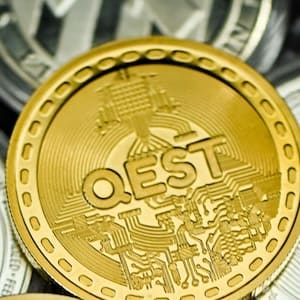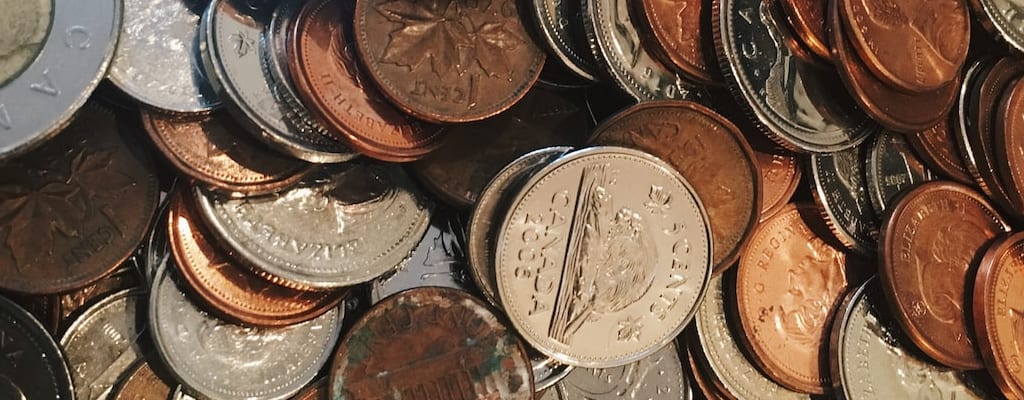almighty dollar: Idiom Meaning and Origin
What does ‘almighty dollar’ mean?
The idiom "almighty dollar" refers to the widespread belief that money is incredibly powerful and holds great influence over people and situations.

Idiom Explorer
The idiom "pretty penny" means a significant or large amount of money. It is often used to emphasize the high cost or value of something.
The idiom "have more money than God" means to be extremely rich or wealthy beyond imagination.
The idiom "everything one touches turns to gold" means that someone is consistently successful in everything they do.
The idiom "everybody who is anybody" means that only the most important or influential people are included or recognized in a particular group or situation.
The idiom "dollar-sign eyes" refers to someone who is extremely greedy or obsessed with money, often to the point of disregarding ethical or moral considerations.
The idiom "dime's worth" implies a small or insignificant value, often used to express the lack of significance or impact of something.
The idiom *deep pockets* refers to someone who has substantial financial resources or is able to spend a lot of money. It suggests that the person is wealthy and able to make significant financial commitments or contributions.
The idiom "cost the earth" means that something is very expensive or costs a lot of money. This phrase is often used to emphasize how expensive something is, comparing it to the high value of the earth itself.
Hidden Power
The idiom "almighty dollar" originated in the United States and is commonly used to emphasize the power and influence of money in society. The term "almighty" highlights the supreme authority and control that the dollar is believed to possess. It is often used in a critical or sarcastic manner to comment on the prioritization of financial gain over other values or concerns.
The idiom can be traced back to the 1840s when it first appeared in various publications across the country. One notable example is from a newspaper called the Knickerbocker in 1848, which states, "An exquisitely delicious speculation – a palpitating watch; – the bare idea of which will put the almighty dollar leaping in your pockets." This early usage exemplifies the association of the dollar with power and prosperity.
During the late 19th century and early 20th century, the idiom gained widespread popularity as the United States experienced rapid economic growth and the rise of the financial industry. The American Dream of material success became deeply ingrained in the national psyche, further elevating the significance of the almighty dollar.
Today, the idiom is still widely used in modern American English, often employed to criticize the excessive focus on money and material wealth. It serves as a reminder of the potential dangers of prioritizing money over other values, such as compassion, integrity, and social responsibility.
The idiom encapsulates both the positive and negative aspects of the American economic system. On one hand, it represents the notion of individual success, entrepreneurship, and economic freedom. On the other hand, it highlights the potential for greed, inequality, and the detrimental impact of consumerism on society.
While the idiom is primarily associated with the United States, similar expressions can be found in other languages and cultures. In English, idiomatic expressions such as "filthy lucre" and "greased palm" convey similar ideas about the corrupting influence of money. These variations further illustrate the universality of the tension between the pursuit of wealth and the sacrifice of other values.
The idiom "almighty dollar" has become deeply ingrained in the American lexicon, serving as a potent symbol of the power and influence of money. Its usage reflects a societal concern about the prioritization of financial gain over other values. It also serves as a cautionary reminder of the potential dangers of excessive materialism. The idiom has stood the test of time, reminding us of the ever-present tension between the pursuit of wealth and the pursuit of other meaningful values.
The phrase "pretty penny" is another idiom related to the almighty dollar. It is used to reference a significant amount of money or a high cost. The expression suggests that something is expensive and requires a substantial sum of money to acquire or maintain. While the almighty dollar emphasizes the power and influence of money, "pretty penny" highlights the financial value or worth of something.
The idiom "have more money than God" is also connected to the almighty dollar. It is an expression used to describe someone who has an abundant amount of wealth. The phrase emphasizes the sheer wealth and financial fortune of an individual, paralleling the idea of the almighty dollar's power and influence in society.
"big bucks" is another related idiom. The phrase is used to describe a large amount of money or significant financial gain. It often conveys the idea of substantial wealth or considerable earnings. Like the almighty dollar, "big bucks" emphasizes the importance and value placed on money in society.
Example usage
Examples:
- The company's main priority is making the almighty dollar, rather than considering the well-being of their employees.
- In today's society, people often prioritize pursuing the almighty dollar over personal relationships and happiness.
- Many politicians are accused of being swayed by the almighty dollar, putting their own financial interests above the needs of the public.
The idiom "almighty dollar" is typically used to refer to the power and importance of money in various contexts. It suggests that money has significant influence and can drive individuals or organizations to prioritize financial gain over other considerations. The idiom implies that the pursuit of money is often seen as paramount, overshadowing other values or concerns.
More "Finance" idioms



